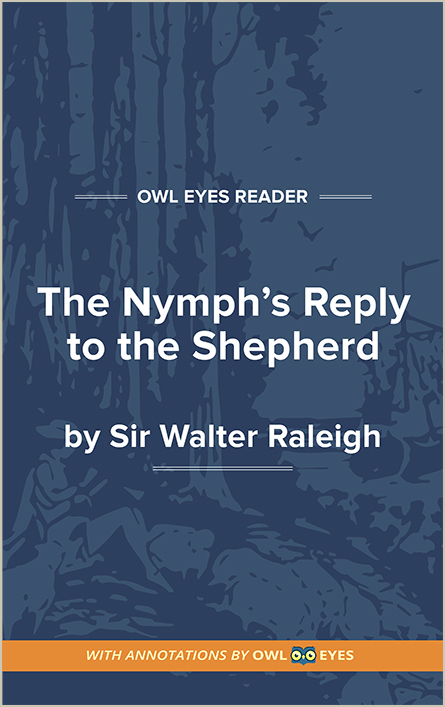- Annotated Full Text
- Flesch-Kincaid Level: 10
- Approx. Reading Time: 0 minutes
The Nymph's Reply to the Shepherd
Published in 1600, Sir Walter Raleigh’s poem “The Nymph’s Reply to the Shepherd” is a satirical response to Christopher Malowe’s poem “The Passionate Shepherd to his Love”. While Marlowe’s shepherd attempts to woo his love with promises of an idealized natural world, Raleigh’s nymph uses a realistic understanding of nature and time to refute each of the shepherd’s claims. For this reason, each stanza in this poem corresponds thematically to each stanza in Marlowe’s poem. Read together, these poems comment on the pastoral tradition, a literary movement that created an idealized vision of the countryside to escape the complications of life in the city. While they both reveal an overall theme of hope and poetic idealization that clashes with reality, Raleigh’s poem ends with the rejection of Marlowe’s speaker. This can be read as Raleigh’s response to the popularity of Marlowe’s poem and the growing popularity of the pastoral. His nymph’s satirical rejection of the shepherd’s poetic delusion dismisses the entire pastoral fantasy as not only false but dangerously foolish. Since Marlowe’s poem was published six years after his death, Raleigh and his nymph got the last word in this argument: in a fallen world, paradise has no place.
- Annotated Full Text
- Flesch-Kincaid Level: 10
- Approx. Reading Time: 0 minutes

